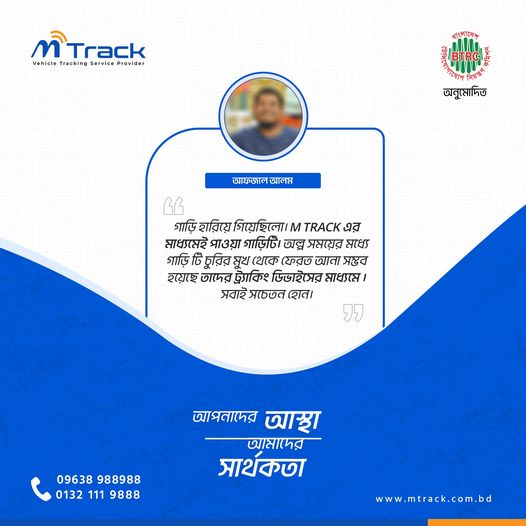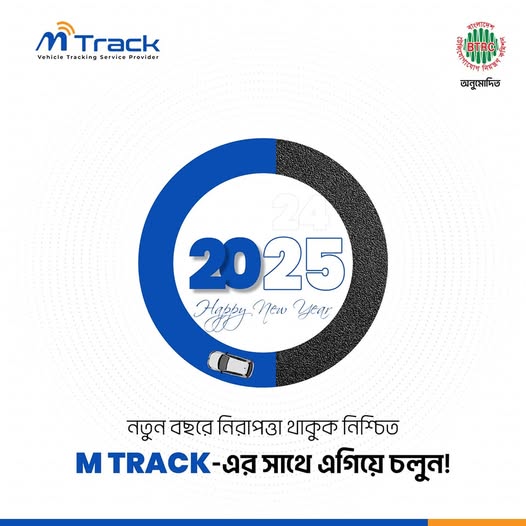In today’s competitive market, car service companies must continuously find ways to optimize operations, reduce costs, and improve customer satisfaction. One highly effective tool that can achieve these goals is GPS tracking technology. Implementing GPS tracking not only helps to monitor vehicle locations in real-time but also provides actionable insights that directly contribute to a stronger bottom line.
1. Enhancing Fleet Efficiency
GPS tracking systems allow car service companies to optimize routes, reduce unnecessary mileage, and ensure drivers follow the most efficient paths. This helps save on fuel costs and reduces wear and tear on vehicles. By ensuring that drivers are adhering to planned routes and avoiding congested areas, companies can improve punctuality and reduce delays, boosting overall customer satisfaction.
2. Reducing Operational Costs
A significant portion of a car service company’s expenses comes from fuel and vehicle maintenance. GPS tracking systems monitor driving behavior such as speeding, idling, and harsh braking, which can lead to excessive fuel consumption and maintenance needs. By analyzing this data, companies can encourage better driving habits, reducing fuel usage and extending the life of vehicles, ultimately cutting down on operational costs.
3. Improved Asset Management
For car service companies that manage a fleet, keeping track of vehicles is crucial. GPS tracking provides real-time data on the location and status of each vehicle, ensuring that none are idle or underutilized. By maximizing the use of each vehicle, companies can increase productivity without having to invest in additional cars. Better asset management leads to optimized resource allocation and improved profitability.
4. Enhanced Customer Service
Prompt and reliable service is key to retaining customers in the car service industry. GPS tracking enables businesses to provide accurate ETAs, notify customers of delays, and offer real-time updates. This transparency builds trust and loyalty, enhancing the customer experience. Additionally, GPS tracking can help dispatch the nearest available vehicle, improving response times and increasing overall service efficiency.
5. Improved Safety and Compliance
Safety is a top priority for any car service company. GPS tracking helps monitor driver behavior and ensures adherence to speed limits and safety regulations. This reduces the likelihood of accidents, which can be costly in terms of vehicle repairs, insurance premiums, and potential legal issues. Additionally, by staying compliant with regulatory requirements, businesses can avoid fines and penalties.
6. Accurate Reporting and Data Analysis
GPS tracking systems generate detailed reports on vehicle usage, routes, fuel consumption, and more. This data allows car service companies to analyze performance trends, identify areas for improvement, and make data-driven decisions. With accurate insights, businesses can adjust strategies to further reduce costs and improve service efficiency, directly contributing to increased profitability.
The Best GPS Tracking Solutions for Long-Haul Trucking
In the world of long-haul trucking, efficiency and safety are paramount. While GPS tracking solutions have become a standard tool for fleet management, finding the best options that cater to long-haul needs is critical. For businesses that operate car service companies with a long-haul trucking division, investing in the right GPS tracking system can significantly improve performance, reduce costs, and ensure timely deliveries. Here’s a look at some of the top GPS tracking solutions that can make a difference in the long-haul trucking industry.
1. M Track
M Track is a top choice for companies looking to optimize their long-haul trucking operations. Known for its advanced fleet management features, M Track offers real-time GPS tracking, route optimization, and driver safety monitoring. With tools designed to reduce fuel consumption and improve driver behavior, it is particularly useful for car service companies managing long-haul trucks. M Track also provides ELD (Electronic Logging Device) compliance, helping companies adhere to industry regulations.
Key Features:
- Real-time GPS tracking
- Fuel usage monitoring
- Route optimization
- ELD compliance
- Driver safety and behavior analytics
- Engine diagnostics and vehicle health monitoring
- Customizable GPS tracking
2. Geotab
Geotab is another leading GPS tracking solution for long-haul trucking. It offers highly customizable tracking options that can be tailored to fit a company’s specific needs. Geotab provides insights into vehicle health, fuel efficiency, and route planning, making it ideal for reducing operational costs. For car service companies with long-haul trucking needs, Geotab’s telematics data can help improve vehicle longevity and driver performance.
Key Features:
- Customizable GPS tracking
- Engine diagnostics and vehicle health monitoring
- Fuel usage reporting
- Route optimization
- Driver performance insights
3. Verizon Connect
Verizon Connect is widely recognized for its robust fleet management solutions, especially for large fleets and long-haul trucking operations. It offers GPS tracking with real-time updates, route planning, and detailed trip reporting. Verizon Connect’s focus on safety is a big plus, with features such as driver behavior monitoring, speeding alerts, and accident tracking. For companies in the car service industry, this system helps ensure compliance, reduce costs, and improve overall fleet management.
Key Features:
- Real-time vehicle tracking
- Driver behavior monitoring and accident tracking
- Route planning and optimization
- Fuel management tools
- Customizable alerts for safety and maintenance
4. Fleet Complete
Fleet Complete is another excellent option for long-haul trucking, offering GPS tracking with a focus on improving operational efficiency. This system allows car service companies to monitor fuel usage, vehicle location, and driver performance in real-time. Fleet Complete also integrates well with maintenance scheduling, ensuring that long-haul trucks stay in optimal condition. With ELD compliance and powerful reporting features, this solution helps companies stay efficient and competitive.
Key Features:
- Real-time GPS tracking
- ELD compliance
- Maintenance scheduling and vehicle health monitoring
- Route optimization and fuel monitoring
- Driver behavior tracking
5. Teletrac Navman
Teletrac Navman is a trusted GPS tracking solution with extensive features designed for long-haul trucking. It offers real-time vehicle location, route planning, and driver performance monitoring, all of which are essential for efficient long-distance hauls. Additionally, Teletrac Navman provides in-depth reporting on fuel consumption and safety metrics, helping car service companies optimize their long-haul operations and reduce costs.
Key Features:
- GPS tracking with real-time updates
- Route planning and optimization
- Safety metrics and driver performance monitoring
- In-depth fuel consumption reporting
- Compliance tools for long-haul trucking regulations
The Role of GPS Tracking in Fleet Insurance using focus keywords: car service
DEMOGRAPHICS
| Data points | Answers |
|---|---|
| Name | Afzal Alam |
| Age | 45 |
| Occupation | Fleet Manager for Car Service Company |
| Marital status | Married |
| Family situation | 2 children, family-oriented |
| Location | Tongi Gazipur |
USER DESCRIPTION
| User Description |
|---|
| Imtiaz Rahman is a seasoned fleet manager in the car service industry. He seeks solutions to lower insurance costs and improve vehicle safety using GPS tracking technology. |
PSYCHOGRAPHICS
| Data points | Answers |
|---|---|
| Personal characteristics | Detail-oriented, proactive, risk-averse |
| Hobbies | Golf, watching sports, spending time with family |
| Interests | Technology, logistics optimization, sustainability |
| Personal aspirations | To balance work-life responsibilities and build a financially secure future for his family |
| Professional goals | Reducing operational costs and increasing fleet efficiency |
| Pains | High insurance premiums, vehicle downtime, and safety concerns |
| Main challenges | Managing fleet safety, ensuring compliance, reducing accidents |
| Needs | Cost-effective solutions to lower insurance and optimize fleet performance |
| Dreams | To be recognized for running an efficient, low-risk fleet while lowering overall business costs |
SHOPPING BEHAVIORS
| Data points | Answers |
|---|---|
| Budget | Mid-range; willing to invest in long-term solutions that reduce insurance premiums |
| Shopping frequency | Quarterly evaluations of insurance and fleet technology options |
| Preferred channels | Online research, industry trade shows, referrals from insurance providers |
| Online behavior | Reads fleet management blogs, uses comparison websites, follows industry forums |
| Search terms | “Best GPS tracking for car service fleets,” “reduce fleet insurance costs,” “fleet safety solutions” |
| Preferred brands | Samsara, Geotab, Verizon Connect |
| Triggers | High insurance premiums, fleet accidents, regulatory compliance updates |
| Barriers | Upfront costs of GPS tracking technology, unclear ROI |
How GPS Tracking Can Reduce Vehicle Wear and Tear for Car Service Companies
For car service companies, maintaining a well-functioning fleet is essential to ensuring smooth operations and minimizing costs. One of the major challenges is managing the wear and tear on vehicles, which can lead to costly repairs, downtime, and premature replacement. GPS tracking systems can play a critical role in reducing vehicle wear and tear by optimizing driving behaviors, monitoring vehicle health, and promoting more efficient fleet management. Here’s how:
1. Optimized Route Planning
GPS tracking allows car service companies to plan the most efficient routes, avoiding traffic congestion and reducing unnecessary mileage. Shorter and more optimized routes mean less stress on the vehicle’s engine, brakes, and tires. By minimizing idle time and stop-and-go traffic, vehicles experience reduced wear on their key components, helping them last longer and perform more efficiently.
2. Monitoring Driving Behavior
Excessive speeding, harsh braking, and rapid acceleration are some of the main contributors to vehicle wear and tear. GPS tracking systems provide real-time monitoring of driver behavior, allowing fleet managers to identify and correct harmful driving habits. Encouraging smoother driving patterns not only improves fuel efficiency but also helps preserve the life of a vehicle’s engine, brakes, and suspension systems.
3. Preventive Maintenance Alerts
Most GPS tracking systems come equipped with maintenance scheduling features that track vehicle mileage and usage. These systems send automatic reminders when it’s time for routine services, such as oil changes, tire rotations, and brake inspections. By staying on top of preventive maintenance, car service companies can address small issues before they become major, reducing the risk of costly repairs and breakdowns.
4. Reduced Idle Time
Excessive idling puts unnecessary strain on a vehicle’s engine, leading to faster degradation of components. GPS tracking systems allow fleet managers to monitor idle times and encourage drivers to minimize idle periods. This not only reduces wear on the engine but also cuts down on fuel consumption, contributing to long-term savings and improved vehicle longevity.
5. Fuel Efficiency and Reduced Engine Strain
By using GPS tracking to optimize fuel usage and monitor engine performance, car service companies can ensure that vehicles are operating at peak efficiency. Poor fuel efficiency can often be a sign of underlying mechanical issues, such as clogged filters or worn-out engine parts. Addressing these issues early prevents long-term damage to the vehicle, extending its overall lifespan.
6. Improved Asset Utilization
GPS tracking allows car service companies to monitor the usage of each vehicle in the fleet. By distributing vehicle use evenly across the fleet, no single vehicle is overworked, which helps extend the life of all vehicles. Fleet managers can track usage patterns and ensure that every vehicle gets sufficient rest and maintenance, reducing wear and tear on individual units.
Why GPS Tracking is Critical for Field Service Management in Car Service Companies
Effective field service management is essential for car service companies that rely on a fleet of vehicles to deliver services to customers. One of the most powerful tools that companies can leverage to improve efficiency, reduce costs, and enhance customer satisfaction is GPS tracking. GPS tracking systems offer real-time data and insights that can transform how field service operations are managed, making it a critical investment for any car service business. Here’s why:
1. Real-Time Fleet Visibility
With GPS tracking, car service companies can monitor the location of their entire fleet in real time. This level of visibility allows dispatchers to know exactly where each vehicle is at any given moment, making it easier to assign the nearest available vehicle to a customer. This reduces response times and increases the overall efficiency of the service. Real-time visibility also helps prevent unauthorized vehicle use and keeps the fleet operating on schedule.
2. Improved Route Planning
One of the most significant benefits of GPS tracking for field service management is route optimization. GPS systems provide real-time traffic updates and suggest the most efficient routes to avoid congestion or road closures. By reducing time spent in traffic and optimizing travel routes, car service companies can complete more jobs in a day, save on fuel costs, and reduce vehicle wear and tear. This results in better productivity and cost savings.
3. Enhanced Customer Service
Field service companies in the car service industry rely on punctuality and reliability to retain customers. GPS tracking allows companies to provide accurate ETAs to clients, keeping them informed about the arrival time of service vehicles. Additionally, if any delays occur, dispatchers can promptly notify customers and provide updates, improving communication and customer satisfaction. Better service means happier customers and a stronger reputation for the business.
4. Reduced Fuel Costs
Fuel is one of the largest operational expenses for any field service company. GPS tracking can significantly reduce fuel costs by promoting efficient driving routes and minimizing idle time. The system can also track fuel consumption patterns and identify any inefficiencies, allowing fleet managers to implement strategies to further cut down on fuel expenses. By managing fuel consumption more effectively, companies can reduce their operating costs and improve profitability.
5. Increased Driver Accountability
GPS tracking provides valuable data on driver behavior, such as speeding, harsh braking, and excessive idling. By monitoring these behaviors, car service companies can address issues that could lead to higher maintenance costs or accidents. Promoting safe and responsible driving habits not only reduces the likelihood of accidents but also extends the lifespan of vehicles. With GPS tracking, drivers know they are being monitored, which encourages better performance and accountability.
6. Streamlined Scheduling and Dispatching
Managing a team of field service technicians requires precise coordination. GPS tracking simplifies the scheduling and dispatching process by showing which vehicles are available and closest to a job site. This makes it easier to assign jobs efficiently, reducing wait times for customers and maximizing the productivity of each driver. Dispatchers can make data-driven decisions to ensure the right technician is assigned to the right job at the right time.
7. Compliance and Safety Management
Car service companies must comply with various industry regulations, including safety standards and driving hours. GPS tracking systems often come equipped with features that help monitor compliance with these regulations. For instance, many GPS systems include alerts for excessive speeding, geofencing capabilities to ensure drivers stay within designated areas, and log features that record driving hours. This ensures compliance with safety rules and reduces the risk of costly violations.
Conclusion
GPS tracking is critical for car service companies looking to improve their field service management. It offers real-time fleet visibility, optimized route planning, enhanced customer service, and significant cost savings on fuel and maintenance. By increasing driver accountability, streamlining scheduling, and ensuring compliance, GPS tracking provides the tools needed to boost efficiency and productivity. In an increasingly competitive market, adopting GPS tracking can give car service businesses the edge they need to thrive.


